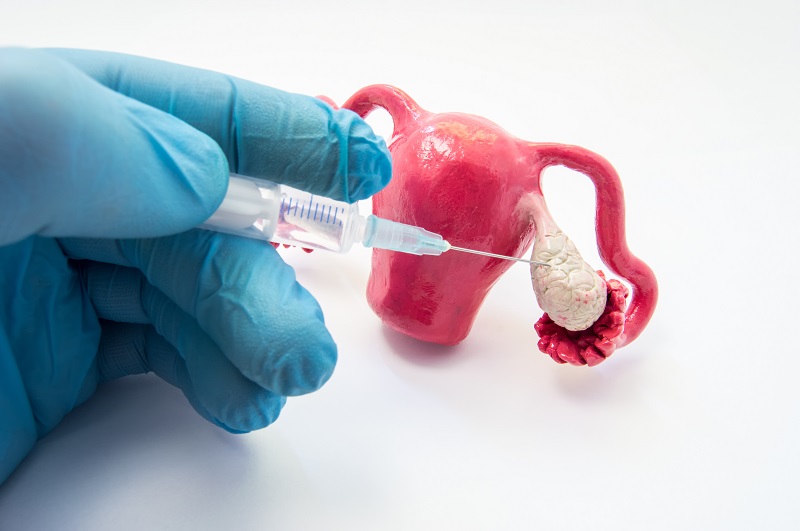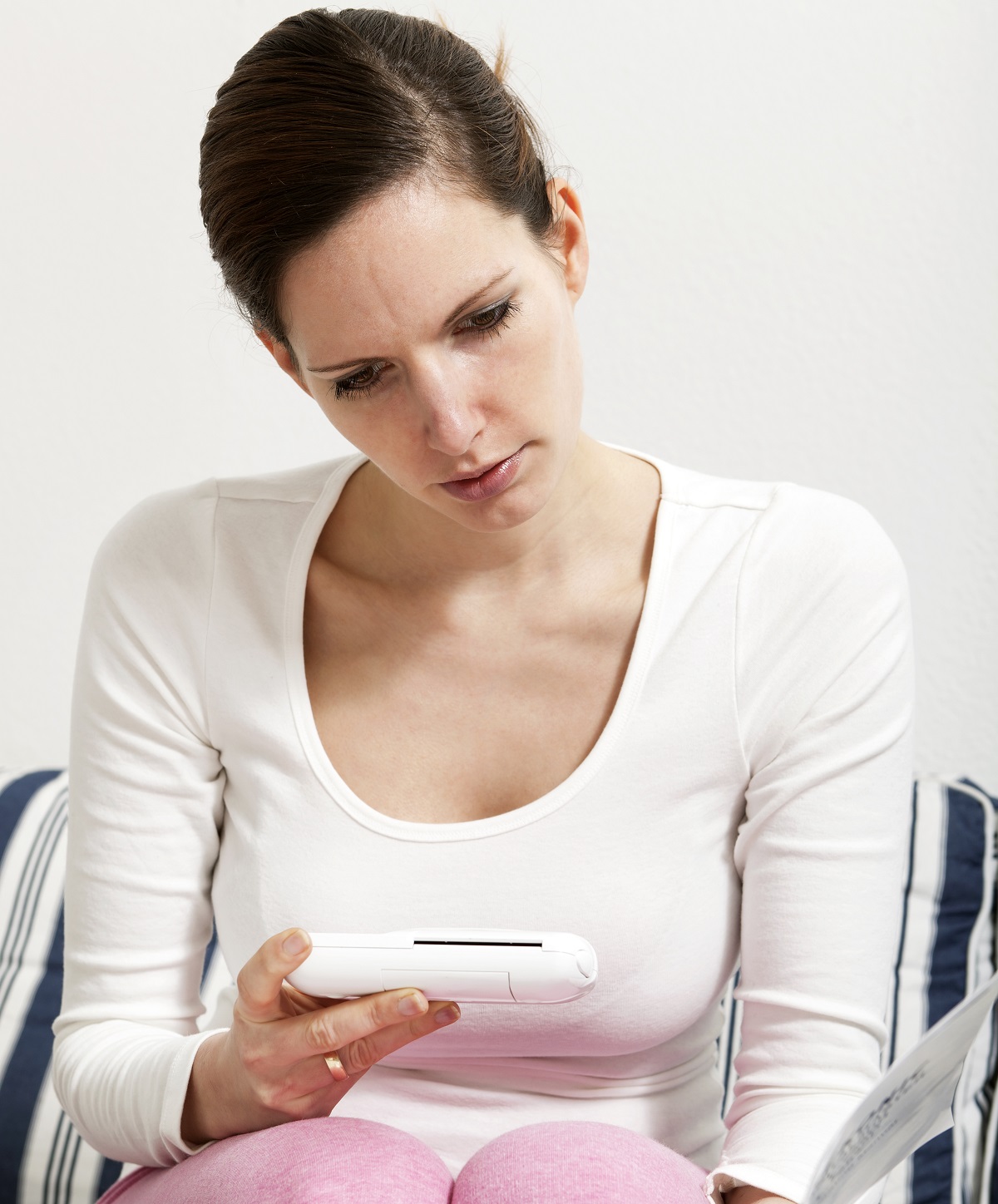Ovulation Induction Fertility Treatment in Delhi
For women with irregular periods, it is hard to know when the ovulation is occurring. This makes it difficult to conceive a baby naturally. Generally, one egg is matured and ovulates in a month and with ovulation induction, multiple eggs are developed and matured every month which increase the chances of conception. Many fertility experts in India recommend ovulation induction along with the other fertility treatments like IUI and IVF. Thus, ovulation induction treatment is necessary to help you get pregnant easily.

What is Ovulation Induction (OI)?
Research shows that more than 30% of women have irregular periods. Ovulation induction treatment is essential for such women. In Ovulation induction (OI) in India injectable or oral medicines are prescribed to support the oocyte and egg development. The only purpose of ovulation induction is to increase the chances of conception by producing multiple eggs. In the ovulation induction process, different medicines are used to stimulate the ovarian follicles in your ovaries.
This develops the ovarian follicles and releases multiple matured eggs. We will evaluate your ovulation through different diagnosis including the blood tests and ultrasound. This ensures that the follicles are fully developed and evaluated at the correct time for your fertility treatment. Once the follicles are developed and the eggs are matured, the IVF expert will then proceed with the IUI process and egg retrieval process at the IVF centre in India. The best IVF doctor in India recommends ovulation induction along with different fertility treatments like IVF, IUI, ICSI, and others in order to increase the possibilities of pregnancy.
When you are ready to talk about your infertility issues, we’re here.
Medications Used in Ovulation
The infertility is a complex disorder and the infertility treatment includes significant physical, emotional, financial and social stress. Besides, different kinds of fertility treatment depend on the age of the woman, the type of infertility and the period of infertility, which also directly proportionate to the success and failure of the infertility treatment.
Fortunately, some women only need one or two ovulation induction treatment in order to restore their fertility. This treatment can also be conducted through ovulation induction medications and through surgery to help you get pregnant with sophisticated techniques. We use different kinds of fertility drugs as the best ovulation induction (OI) medications in order to stimulate the ovaries. These fertility drugs are used for women who are infertile due to ovarian disorders. These ovulation medications in India work like the natural hormones namely Follicle Stimulating Hormone and Luteinizing hormone which triggers the process of ovulation.
Clomid: This fertility drug is an oral supplement and it directly stimulates the pituitary gland to release more hormones which are necessary to stimulate the ovaries.
Gonadotropins: This drug is injectable and it directly affects the ovaries to develop multiple eggs. It includes medications like Gonal-F, Bravelle, Ovidrel, and others that trigger the release of matured eggs from the ovaries.
Bromocriptine: Sometimes the pituitary gland produces excess prolactin which restricts ovaries to mature the eggs. Bromocriptine is a dopamine agonist and it may be used to handle the ovulation disorder which is caused by excess production of prolactin by the pituitary gland.
Process of Ovulation Induction (OI)
The most common treatment for ovulation induction (OI) process includes the use of drugs producing FSH hormones. In 70% of the cases, we used clomiphene citrate drug which is commonly known as Clomid or Serophene. This drug acts by interrupting the chain reaction of stimuli to the pituitary gland and this enables to produce more follicle stimulating hormones. Then the FSH hormone stimulates the ovaries which will produce multiple matured eggs.
In OI process in India, we generally prescribe clomiphene tablets for five days commencing the first few days of a monthly cycle. Then the ovulation will occur after the 5 to 10 days later. In many cases, women notice that they are having less vaginal mucus while taking clomiphene and then this method is not used to detect ovulation.
The most common treatments used include clomiphene citrate (trade name Clomid/ Serophene), or FSH (Follicle Stimulating Hormone). This drug disturbs the chain reaction of the stimuli of the pituitary gland during the ovulation induction (OI) procedure in India. This enables more FSH and LH hormone. We will prescribe you this oral supplement for five days of your monthly cycle. After giving this drug, you can expect your ovulation after ten days.
If the oral medication is not working, then we give HCG hormones through injection. The HCF is used to trigger ovulation which produces mature eggs. This injectable drug is given from day 2 or 3 of the cycle and when the estrogen level is increased, we conduct an ultrasound to confirm the production of mature eggs. We constantly monitor your FSH level in order to prevent multiple pregnancies.
Take a Second Opinion From Our IVF Specialist
Who is recommended for Ovulation Induction
- Neural disorder: Many women are suffering from a minor neural disorder which is associated with the signals between the brain and ovaries. This interrupted signal prevents the ovaries to produce eggs. This is a common problem in heavy weight lifting and underweight women. Besides, working women who are engaged in night shift might also suffer this problem.
- Women with PCOS: The polycystic ovarian syndrome i.e. PCOS is the most common hormone disorder which is related to the cycles of periods. This disorder affects women with excess body hair and unnecessary weight gain.

- Hormone imbalance: Sometimes, you might be suffering from any hormone imbalance like the increase or decrease of prolactin.
- Premature menopause: This disorder may be temporary or it may be permanent, but there is a limit when ovaries are exhausted and they reduced the supply of eggs.
- Ovarian failure: this is the minor problem which is associated with the premature damage of the ovarian follicles. This can be temporary and can be easily solved with the ovulation induction treatment.
Ovulation Induction(OI) Treatment Risk Factors
Risk is inevitable with any fertility treatment. And when it comes to the ovulation induction treatment, the only risk that you need to be aware of is the risk of multiple pregnancies. The side effects of ovulation induction (OI) are very low as it is treated with the other artificial reproductive techniques like IVF and IUI. Generally, only one or two follicles are produced by the ovaries, but with ovulation induction, there are chances that multiple eggs are produced and all of them are fertilized naturally.
In the case of IVF, we will give you the option to terminate the pregnancy and retain the number of the embryo as many as you want. But in other treatments, the cycle is very liked to be canceled, and our top IVF specialist will reassess you for further treatment. The chances of multiple pregnancies after the ovulation induction treatment greatly depend on the dose of fertility drugs. As the best IVF centre in India, our top IVF specialists will help and guide you to take the proper measures while dealing with ovulation induction.
When you are ready to talk about your infertility issues, we’re here.









